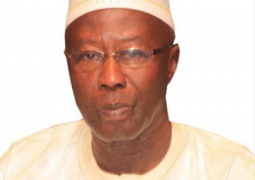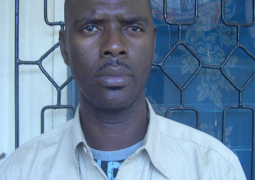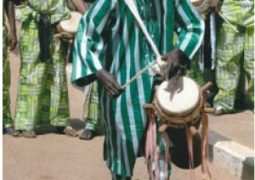At
a panel discussion yesterday organised by the University of The Gambia School
of Journalism in collaboration with Francis DeGaulle Njie Foundation on the
role of journalism in national development, a lot of emphasis was put on the
standard of English language in The Gambia.
The
escalating problem of English language ineptitude among most Gambian
journalists, particularly those with the newspapers, has and continues to
attract discussion in academic and professional circles.
This
is not a vain criticism of our media practitioners for it is daily manifested
on the pages of the newspapers. It seems
not to be getting any better, even though criticism escalates.
It
was not like this before. Some of us had
the privilege of going through some Gambian newspapers of the 1940s towards the
1980s. This was when newspapers like the
Gambian Outlook, the Gambia Onwards, the Senegambia Sun and the Gambia News
Bulletin, among others, were in circulation.
The
language prowess of the journalists then, as manifested in the newspapers, was
remarkable. Their mastery of the English
language was just awesome. Most of those
people were not even professionally trained journalists, but any single article
they wrote, you can see their depth in language.
From
empirical evidence, the English standard in the media started to fall in the
early 2000s, and the meteoritic slop continues.
But
has it not been said that the media is the mirror of the society? It is the kind of mirror through which we can
see the happenings, occurrences and events of the society.
Through
the media coverage and reporting, one can make an inference on the state of
affairs in that society. Now if that is
the case, would it not be right to conclude that the poor standard of English
language in the media is a reflection of the level of English language
generally in The Gambia, at the moment.
The
standard of English language in the media started to fall at a time when the
education system in the country is dramatically falling. For example, products
of primary schools of yesteryears could easily write letters, whereas secondary
school students of today cannot.
In
the media, we deal with people of different academic and professional
backgrounds, and receive numerous letters.
It is a pity that even so-called degree holders find it difficult to
write a concise three-paragraph letter of invitation.
A
lot of our people can seemingly speak very good English. Or they have almost no difficulty in
expressing themselves orally.
Give
them a pen to write, and there will be confusion. A lot of the so-called graduates and educated
guys miserably butcher the language. We
have the speeches, presentations and press releases of people at the level of
director or higher, but the number of malapropisms, grammatical shortfalls,
incorrect spellings, wrong punctuation, and sentence ambiguity is mindboggling.
One
of the biggest problems of written English in The Gambia is the careless
mixture of British and American English.
As
a way forward, it is imperative for people to regard the poor standard of
English language in media as a national crisis, not just a journalists or media
problem.
Maybe
there is a need for a revision of teaching methods in schools, including at the
university and colleges, for that could invariably improve the writing and
speaking of English from the basic to the tertiary level, and even beyond
school.
Heaping
the blame on the media because they expose their mistakes to you is not going
to solve the problem.
This
is, however, no excuse for the media practitioners for journalists are supposed
to be above average in their grasp of the language.




